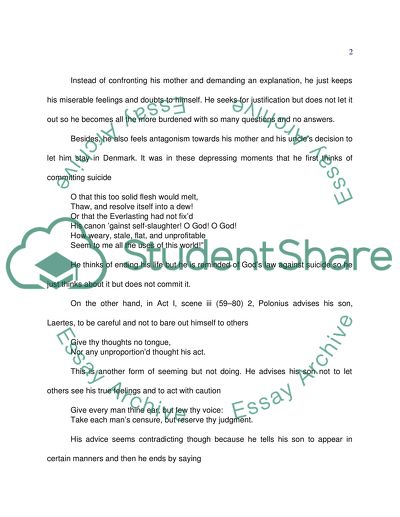Cite this document
(“Hamlet is very much a play about seeming and not doing. Discuss the Essay”, n.d.)
Hamlet is very much a play about seeming and not doing. Discuss the Essay. Retrieved from https://studentshare.org/miscellaneous/1510412-hamlet-is-very-much-a-play-about-seeming-and-not-doing-discuss-the-difference-between-seeming-and-doing-and-how-those-caught-up-in-seeming-are-paralyzed-and-u
Hamlet is very much a play about seeming and not doing. Discuss the Essay. Retrieved from https://studentshare.org/miscellaneous/1510412-hamlet-is-very-much-a-play-about-seeming-and-not-doing-discuss-the-difference-between-seeming-and-doing-and-how-those-caught-up-in-seeming-are-paralyzed-and-u
(Hamlet Is Very Much a Play about Seeming and Not Doing. Discuss the Essay)
Hamlet Is Very Much a Play about Seeming and Not Doing. Discuss the Essay. https://studentshare.org/miscellaneous/1510412-hamlet-is-very-much-a-play-about-seeming-and-not-doing-discuss-the-difference-between-seeming-and-doing-and-how-those-caught-up-in-seeming-are-paralyzed-and-u.
Hamlet Is Very Much a Play about Seeming and Not Doing. Discuss the Essay. https://studentshare.org/miscellaneous/1510412-hamlet-is-very-much-a-play-about-seeming-and-not-doing-discuss-the-difference-between-seeming-and-doing-and-how-those-caught-up-in-seeming-are-paralyzed-and-u.
“Hamlet Is Very Much a Play about Seeming and Not Doing. Discuss the Essay”, n.d. https://studentshare.org/miscellaneous/1510412-hamlet-is-very-much-a-play-about-seeming-and-not-doing-discuss-the-difference-between-seeming-and-doing-and-how-those-caught-up-in-seeming-are-paralyzed-and-u.


